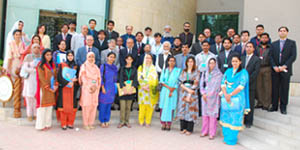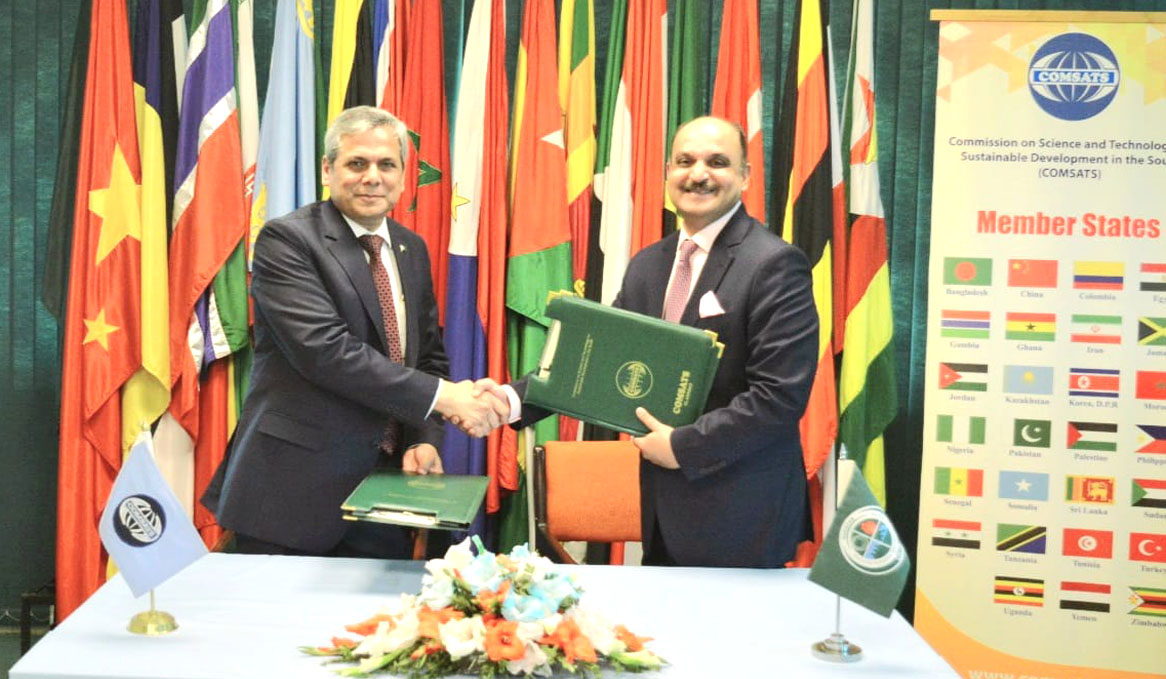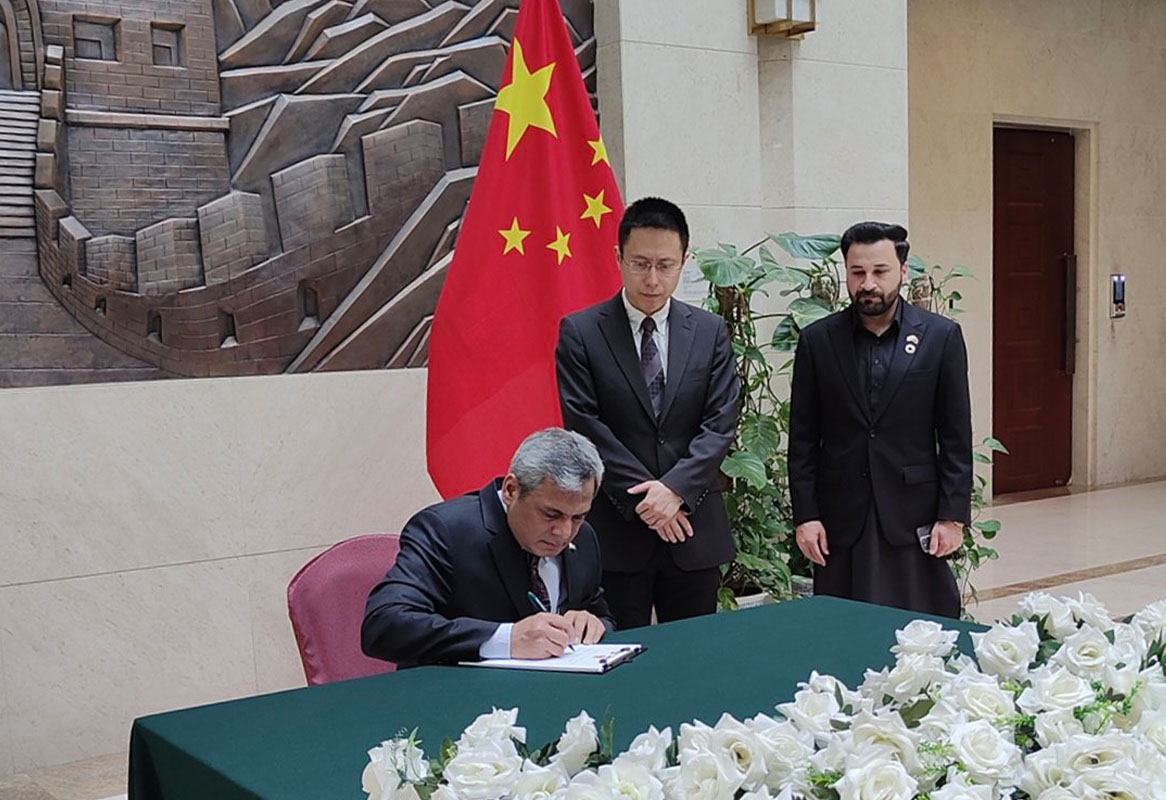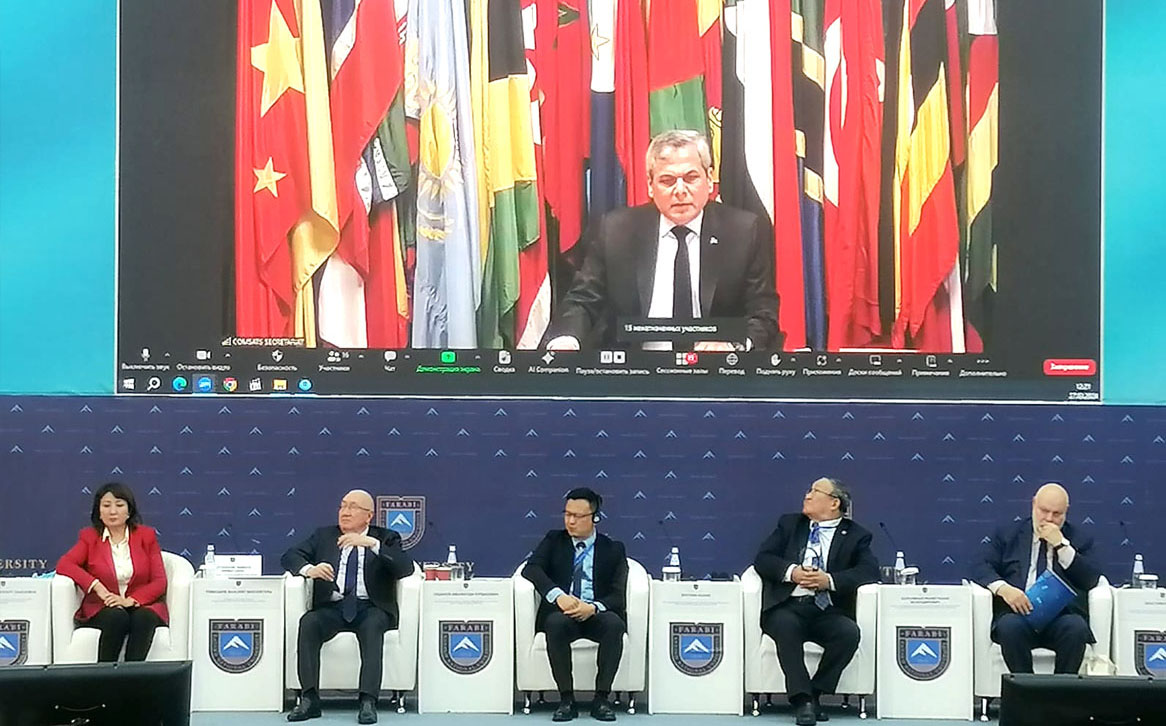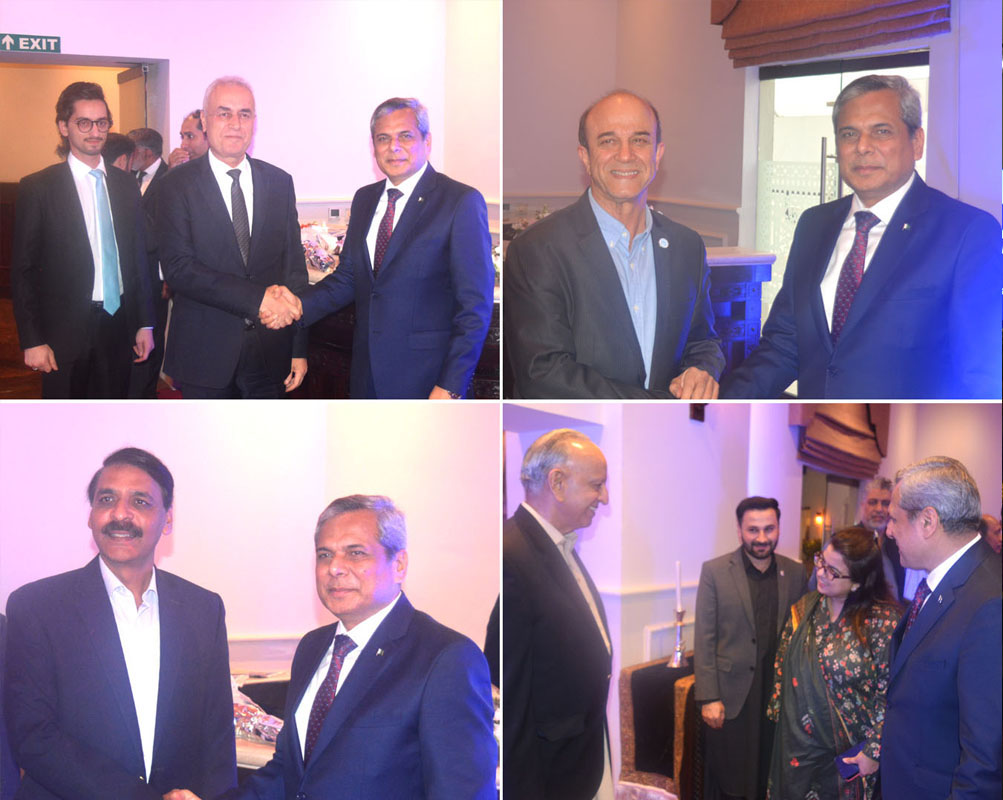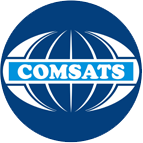COMSATS’ national meeting, organized in collaboration with COMSTECH and HEC, concluded successfully on 28th October 2009 in Islamabad. The meeting which was Pakistan-specific and youth-centric was participated by a select group of twenty five young students, researchers, scholars and thinkers hailing from all provinces of Pakistan. The group discussed key issues of national importance under the supervision of 12 eminent subject experts who also gave keynote addresses.
Dr. Inam-ur-Rahman, Scientist Emeritus, PAEC and Dr. S.M. Junaid Ziaidi, Rector COMSATS Institute of Information Technology, Islamabad acted as subject exp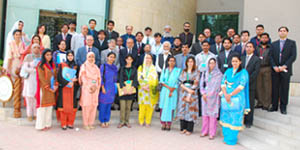 erts on the first technical session on Education; Dr. Sania Nishter, Founder President and Executive Director, Heartfile-Pakistan and Dr. Birjees M. Kazi, Executive Director, National Institute of Health, Islamabad steered the second technical session on Health; Dr. Arshad Ali, Director General, School of Electrical Engineering and Computer Sciences (NUST), Islamabad and Dr. Khalid Rashid from COMSATS Institute of Information Technology (CIIT), Islamabad were the subject experts on the third technical session on ICTs; Dr Tariq-ur-Rahman, Chairman, Pakistan Council for Science and Technology, Islamabad and Dr. Asad Ali Shah, Former Member (Infrastructure), Planning Commission of Pakistan were the subject experts for fourth technical session on Economy and S&T Issues; Dr. Qamar-uz-Zaman Chaudhry, Director General, Pakistan Meteorological Department and Dr. H.E. Tusneem, Former Chairman, Pakistan Agricultural Research Council and present Member (Food and Agriculture), Planning Commission of Pakistan looked after the fifth technical session on Agriculture and Environment whereas Dr. Shaukat Hameed Khan, Former Member (Science and Technology), Planning Commission of Pakistan and Mr. Ashfaq Mahmood, Former Federal Secretary and current Visiting Faculty Member of CIIT, Islamabad acted as subject experts of the sixth technical session on Energy.
erts on the first technical session on Education; Dr. Sania Nishter, Founder President and Executive Director, Heartfile-Pakistan and Dr. Birjees M. Kazi, Executive Director, National Institute of Health, Islamabad steered the second technical session on Health; Dr. Arshad Ali, Director General, School of Electrical Engineering and Computer Sciences (NUST), Islamabad and Dr. Khalid Rashid from COMSATS Institute of Information Technology (CIIT), Islamabad were the subject experts on the third technical session on ICTs; Dr Tariq-ur-Rahman, Chairman, Pakistan Council for Science and Technology, Islamabad and Dr. Asad Ali Shah, Former Member (Infrastructure), Planning Commission of Pakistan were the subject experts for fourth technical session on Economy and S&T Issues; Dr. Qamar-uz-Zaman Chaudhry, Director General, Pakistan Meteorological Department and Dr. H.E. Tusneem, Former Chairman, Pakistan Agricultural Research Council and present Member (Food and Agriculture), Planning Commission of Pakistan looked after the fifth technical session on Agriculture and Environment whereas Dr. Shaukat Hameed Khan, Former Member (Science and Technology), Planning Commission of Pakistan and Mr. Ashfaq Mahmood, Former Federal Secretary and current Visiting Faculty Member of CIIT, Islamabad acted as subject experts of the sixth technical session on Energy.
All the planned topics bearing close relationship with socio-economic development of Pakistan, i.e., education, health, energy, agriculture, environment, ICTs and economic issues were thoroughly deliberated in the meeting. The role of science and technology to meet the socio-economic challenges faced by Pakistan in the afore-stated areas was also discussed in six technical sessions spread over 3 days.
The inaugural session was held on 26th October 2009, Dr. Imtinan Elahi Qureshi, Executive Director COMSATS chaired the session. In his inaugural address, Dr. Qureshi highlighted the importance of indigenisation of scientific and technological efforts which was the only way to achieve socio-economic advancement of Pakistan. He said that the progress cannot be achieved through foreign aid. Developing Countries should rely on their own resources and strengthen institutions to achieve development targets. He advised the youth to work for the nation with commitment, honesty and discipline. He also gave a brief description of COMSATS’ mission, activities and its contributions to the socio-economic uplift of its Member States. Eminent scientists like Prof. Dr. Atta-ur-Rahman and Dr. Samar Mubarakmand attended various sessions of the meeting and addressed the youth giving their advice based on their personal experience in life. They reminded the youth that the future prosperity of the country will depend upon their professionalism, quality of work and dedication to the nation.
The meeting succeeded in providing a national platform to the young participants to create awareness in them about the challenges the country was facing and to have a clear idea how to deal with these challenges taking the assistance of the effective tools of science and technology. The deliberations over the course of three days led to the agreement of the meeting on the following main points:
- The meeting recognizes that Pakistan is facing serious challenges in education, health, agriculture, environment, energy, etc, and these challenges were significantly hampering the socio-economic development of the country.
- The meeting is convinced that science and technology can play an effective role in meeting the above mentioned socio-economic challenges being faced by Pakistan.
- The salient technologies which can be helpful include biotechnology, hydrology, mining engineering, electrical and electronic engineering, civil engineering, medicinal and chemical processing technologies, alternate energy technologies, nanotechnology and ICTs.
- Pakistan needs to focus on applied research and developmental efforts much more than pure basic research of academic nature to tackle the specific socio-economic problems in the six identified areas.
- Educational reforms, policy planning, strategy formulations and good governance are essential prerequisites of successful implementation of technical programmes to be employed for the purpose. Rural population of Pakistan should be given preference to avail the benefits of science and technology for the developmental objectives. The rural societies should be made informed-societies through extensive utilization of ICTs with the Government support.
- The meeting strongly and unanimously believes that a think tank should be created as early as possible to carry forward the work started by the present meeting. In order to have an effective inter-connectivity and cross-fertilization of creative ideas, a dedicated web portal should be provided to the prospective think tank. This think tank will keep itself engaged with the activities of COMSATS.
- The meeting desires that its views and recommendations should be communicated to the policy and decision-makers of the country for serious consideration and implementation.
In the concluding session, certificates of attendance were given to the participants. During this session, the eminent scientist, Dr. N.M. Butt, former chairman, National Commission on Nanotechnology and current Professor at Preston University, Islamabad, gave an enlightening talk on the present world status of Nanotechnology which is the emerging cutting-edge technology and has a promising future in Pakistan.

